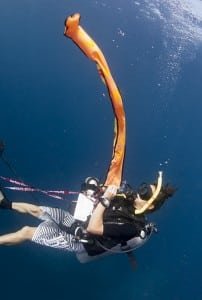You’ve just completed your IDC. Now what, It’s not uncommon for newly qualified instructors to hit a wall after becoming certified. Now what they ask? Two weeks of intensive study now I need to find some work and get some experience, this can be very daunting prospect with little or no experience, there are a few steps to consider before getting too caught up about it!
PADI MSDT:
Its always good to get some experience under your weight belt, as well as a few specialties; the best way to do this is through the MSDT Internship Program which sees you gaining 5 specialty instructor ratings and team teaching a variety of courses until you reach 25 certifications. This is a great way of learning from other instructors as well as a great way of gaining confidence and developing your own style of teaching.

CV:
When you are at a stage where you are ready to actively look for work whether you’re looking for a full time position or a freelance position its important to sell yourself and this starts with the CV, below are a few Do’s and Dont’s for writing a diving CV.
DO:
- Keep it short; diving CVs should fit onto one page.
- Do put your name, phone number and and professional level somewhere obvious so that potential employers can get to the important info fast.
- DOUBLE CHECK your phone number and other contact information, this may seem like a silly thing to point out but it happens more often than you may think.
- If you are bilingual/multilingual put which languages you can speak on your CV, this is a very big selling point!
- Do invest in some insurance and put it somewhere clearly on the CV, depending on where you are in the world the type of insurance you need will differ so make sure you are covered correctly.
- Do put a photo on your CV, if possible a colour one and remember this is for a job, make sure the photo is suitable.
- Give a couple of references; whether its someone from previous job or your DMT Coordinator or Course Director but do always ask permission from the person you intend to put as your referee.
DON’T:
- Don’t forget to mention the equipment you own, there are few dive centres that will employ someone who doesn’t own there own equipment
- Don’t forget to put your PADI Pro number on your CV, somewhere apparent so the dive school can check if you are in status.
- Don’t put your full employment history on the CV as this could take up a couple of pages and it’s sometimes not relevant.
- Don’t lie!

Handing out your CV:
Handing out CVs can sometimes be a daunting experience but just relax and smile, chances are you will be asked some basic questions on the spot if you are going into the shop so be prepared and make sure it is somewhere on your CV as well! First and foremost look presentable and be polite; certain questions you may get asked are how long are you around for, this is one of the first questions Master Divers will ask someone who hands in a CV. Other questions you may get asked is if you have insurance and whether you own all of your own equipment, these two are both big MUSTS especially on Koh Tao and other busy dive industry spots around the world.
Always do some research on the dive school you are handing your CV to before you go there, if you know they are a family based dive school that aims to give people a personal experience with small group sizes then don’t go in looking worse for wear and bragging about the 8 pack course you just completed. Gauge the dive centre before you even step foot through its doors.

Most importantly get out there! Teaching people how to dive is an incredible experience, enjoy it and good luck!